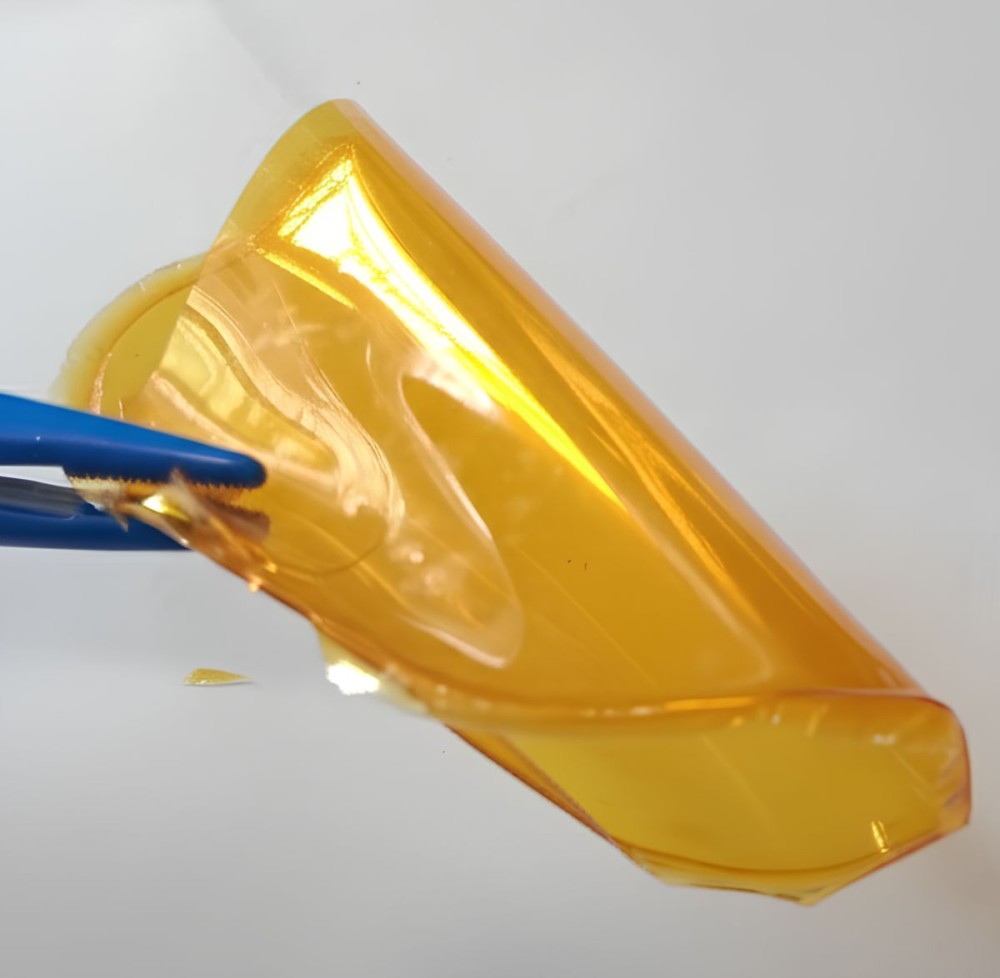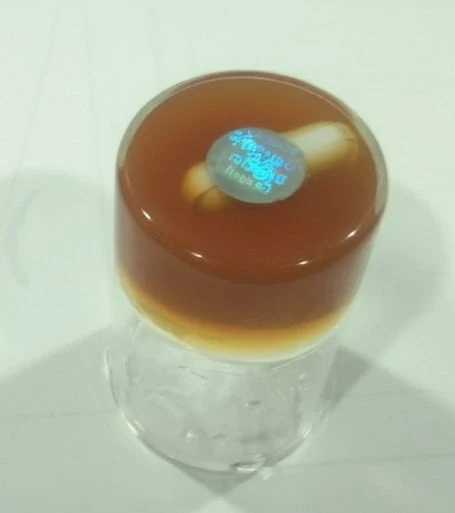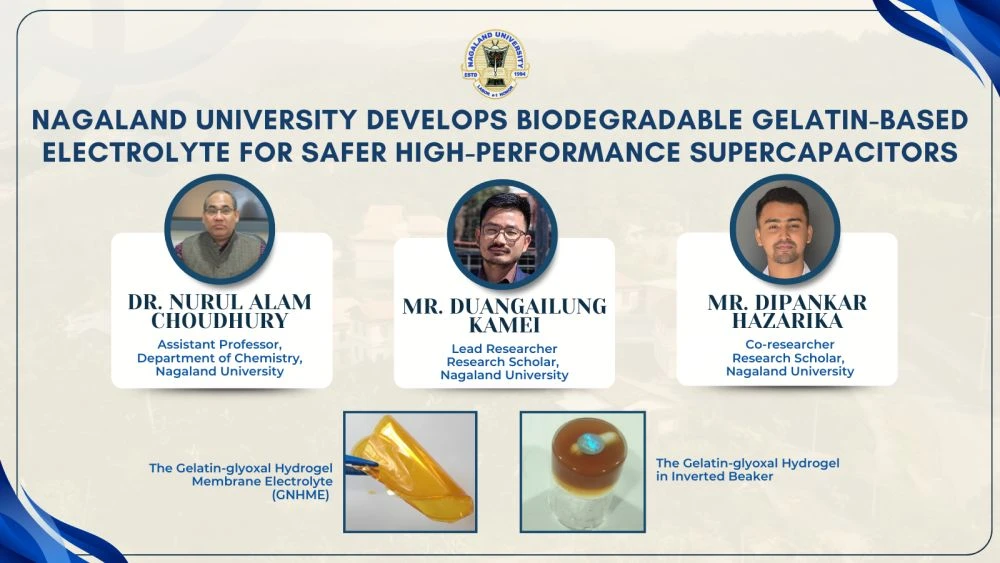The Gelatin-glyoxal Hydrogel Membrane Electrolyte developed by a research team from Nagaland University. (Photo Courtesy: NU)

LUMAMI, NAGALAND, November 3 (MExN): Researchers at Nagaland University reportedly have developed a biodegradable gelatin-based hydrogel membrane electrolyte that could offer a safer, flexible alternative to conventional electrolytes used in supercapacitors.
Supercapacitors are fast-charging, high-output energy storage devices used in everything from electric vehicles to emergency medical equipment.
As per the official statement, the traditional energy storage systems often use liquid electrolytes that can leak, corrode components, and cause environmental damage.
To address these challenges, the NU research team created the material described as a “KI-doped glyoxal-crosslinked gelatin hydrogel membrane electrolyte” (GNHME) combines gelatin, a naturally biodegradable protein, with glyoxal, a crosslinking agent that enhances mechanical flexibility, and potassium iodide (KI), a redox-active dopant that reportedly boosts ionic conductivity and capacitance.

The research team, led by Duangailung Kamei and co-researcher Dipankar Hazarika under the supervision of Dr Nurul Alam Choudhury, published their findings in the peer-reviewed journal Materials Today Chemistry.
Nagaland University has also been granted an Indian patent for the technology on September 22, the statement informed.
Dr Choudhury said the biodegradable, redox-active electrolyte represents a step toward eco-friendly, high-performance energy storage compatible with renewable energy integration.
Research Scholar Kamei also noted that currently the team working to optimise dopant composition to further enhance energy density and extend the lifespan of the device.
Co-researcher Hazarika further underscored that the work underscores India’s growing contribution to global clean energy research by offering an environmentally benign, cost-effective, and high-performance alternative to traditional electrolyte.

Meanwhile, Prof Jagadish K. Patnaik, the Vice Chancellor of State’s lone central university lauded the team and said that the the innovation reflects the university’s commitment to sustainable technologies and scientific excellence.
The university said prototype supercapacitors using the membrane have already powered LED lamps for extended periods, and ongoing work aims to optimise dopant composition and scale up fabrication for real-world applications.
This research could pave the way for cleaner, more sustainable energy solutions and holds the potential to have a great impact on sustainable energy storage, particularly in devices such as electric vehicles, medical wearables, and portable electronics, it added.




.jpg)

